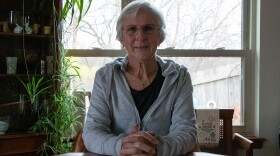Oklahoma ranked No. 46 in overall child well-being in a study produced by the Annie E. Casey Foundation in conjunction with the Oklahoma Policy Institute for the KIDS COUNT project.
The study accounted for factors like economics, education, health and family and community. All of those categories were also ranked individually along with the overall ranking.
The KIDSCOUNT Data Book is put together annually, ranking each state based on individual and national data.
“A good child care system is essential for kids to thrive and our economy to prosper. But our current approach fails kids, parents, and child care workers by every measure,” Lisa Hamilton, president and CEO of the Annie E. Casey Foundation wrote in a press release.

Oklahoma ranked in the bottom half of states in all categories and overall.
The state’s economic ranking lands at 38. That category’s metrics include how many children live in poverty, whose parents lack secure employment, who live in households with a high housing burden and teens who are neither in school nor working.
Health was ranked 37, with the amount of low birth-weight babies, children without health insurance, child and teen deaths per 100,000 and childhood obesity numbers used to calculate that number.
Children in single-parent families, ones where the head of household didn’t graduate high school, those that live in high-poverty areas and teenage births per 1,000 were taken to figure Oklahoma’s 43 ranking in family and community.
Ranked only above New Mexico, Oklahoma fell at 49 in its education ranking. Statistics regarding children ages 3-4 who are not in school, fourth-graders not proficient in reading, eighth-graders not proficient in math and the number of high school students not graduating on time were used to calculate the low ranking.
Of the 16 metrics used to determine rankings, Oklahoma ranks in the bottom half of states in 15 of 16 survey metrics. That one metric is the percentage of children living in households that spend more than 30 percent of their income on housing, where Oklahoma fell at 20.
However, the Oklahoma Policy Institute said in a press release, high housing prices still affects a quarter of Oklahoma families.
The institute also cites the implementation of Medicaid expansion for the state’s health ranking. In June 2020, voters passed State Question 802 to expand the eligibility of Medicaid, adding over 200,000 low-income adults to the state-funded insurance program.
Executive Director of the Oklahoma Policy Institute Shiloh Kantz said Oklahoma needs to invest in all Oklahomas to foster change.
“To achieve our greatest potential, Oklahoma must invest in the success of all residents and not just the wealthiest,” Kantz said. “We need targeted relief for people.”
KIDS COUNT presented three steps in improving childhood well-being nationally. Those include investments in child care by federal, state and local governments, public and private leadership in improving infrastructure for home-based child care and the expansion of federal programs.
Get the latest Oklahoma news in your inbox every weekday morning. * indicates required
Copyright 2023 KOSU. To see more, visit KOSU. 9(MDA4OTAxNzAzMDEzMjc0MTc2MzA5ZDZlMw004))







